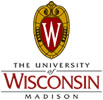New Linux and Winstat Servers
We replaced Hal, one of our two interactive Linux servers, and our three Winstat servers with 3.4Ghz servers with 4Gb RAM. The old Winstat servers will soon be reconfigured to replace the Wincenter servers, which will be a substantial improvement. Remember to check the server status page to see which servers are least busy--spreading the computing load evenly among servers will give the best performance for everyone.
NVivo 7 Available on the Winstat Servers
NVivo 7, the successor to both NVivo 2 and N6 (the NUD*IST line), is now available on the Winstat Terminal Servers. NVivo 7 contains many new features and the user interface in particular is substantially different from previous versions. Because of this we are leaving the older versions installed to help you in the transition.
While NVivo is not on our list of fully supported software, Russell Dimond, our statistical computing specialist, recently had training with the new version. So feel free to send NVivo 7 questions to the consultant, and Russell will answer what he can. Also, please let us know about any problems with the software so we can report them to the NVivo developers.
Chris Thorn, our campus resident expert on NVivo software, will be doing a hands-on introduction to NVivo 7 for SSCC members on April 12th from 9-12. Visit our training page to register.
We recognize that we have a growing community of SSCC members interested in qualitative analysis and we hope to be able to meet your needs. We now have two software packages on our Winstat servers - NVivo and Atlas.ti (announced last month). We hope to be able to continue to offer training and develop staff expertise for support as demand warrants.
Presentation on using New Beowulf Cluster
Last month we announced our new Beowulf cluster for SSCC members wishing to run parallelized code written in C/C++ or Fortran. On April 21, from 10:30 until noon. Jim Walker, Professor in Economics, will be offering a workshop introducing parallel computing using MPI in FORTRAN or C/C++ programs. In the workshop, Jim will explain MPI, describe why MPI may be of interest to SSCC members, present some examples, and relate MPI to parallel processing on Condor using PVM. SSCC systems programmer, Ryan Horrisberger, will also be on hand to show how to run and monitor jobs on the Beowulf cluster. Visit our training page to register.
Change to SpamAssassin "Whitelisting"
SSCC members who used Spambouncer, SpamAssassin's predecessor, had a setting carry over which "whitelisted" (always treated as legitimate) mail from any wisc.edu domain, including ssc.wisc.edu. Unfortunately spammers realized many spam filters were set up this way, and some have learned to make their email appear to come from the recipient's domain. This earned them a free ticket to the recipient's inbox.
We have therefore removed this legacy setting from all SpamAssassin configurations. In theory this increases the chance of having legitimate mail misidentified as spam, but such false positives are very rare. If you're concerned, you can put back the whitelist setting following the instructions in Filtering Your Email with SpamAssassin, or ask the consultant for assistance in doing so.
New Publications
New SSCC Publications include:
- Using Compressed Data in Windows
- Connecting to Your Office Computer Using Remote Desktop (Windows)
- A Simple Procedure for Producing Publication-Quality Graphs using SAS
- Connecting to SSCC Linux Computers using X11 in Mac OS X
- Using the SSCC's High Performance Computing Cluster
- Managing Disk Space in Windows
- Managing Disk Space in Linux
- Using Compressed Data in SAS
Note that Stata can very easily use compressed data as well--type findit gsave to learn how.
Tip: Importing Thunderbird Address Books into SquirrelMail
Follow these steps to import your Thunderbird personal address book into SquirrelMail:
- Export your Thunderbird address book as a LDIF file by opening your address book, clicking Tools, Export..., and then filling in a name for the file to export. (It should default to the file extension ldif in the Save as type drop-down list.)
- Close Thunderbird. (You should only have one IMAP email program open at one time.)
- Open a web browser and log into SquirrelMail.
- Click on the Addresses link.
- Find Address Book File (ldif only), and enter or browse for the file created in step 1.
- Press the Submit button to import the address book.
Contact the Consultant if you need assistance.

